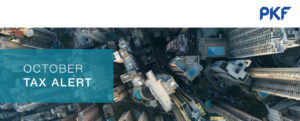Recently, the Supreme Court of Appeal (“SCA”) upheld a ruling handed down by the High Court in Pretoria 2 years ago, setting aside an exorbitant rates regime implemented by the City of Tshwane Metropolitan Municipality.
The unlawful property rates regime arose following the amalgamation of the former Kungwini Municipality into the City of Tshwane. When compiling its supplementary valuation roll in 2012, the City of Tshwane incorporated properties which previously fell within the Kungwini Municipality into its jurisdiction, but re-categorised as “vacant” properties which had previously been categorised and rated as “residential”. This was done without the prescribed notice, depriving the affected property owners of the right to object to the re-categorisation. The impact of this is that the thousands of property owners in question were no longer invoiced at the considerably lower residential tariff, and were instead rated at the vacant land tariff (some 4.5 times higher than the residential rate). To make matters worse, the increase date was applied retrospectively to July 2011, being the date upon which the properties in question were incorporated into the City of Tshwane.
The net impact was that owners who received monthly invoices in the amount of R843.43 in August 2012, received rates invoices in the amount of R75 939.64 the very next month. Other owners went from paying a monthly amount of R491.16 to R4 009.33, representing an alarming increase of 716{780f53c297e2c008074d23b865a0ce0b35a4f08852d8e1e49466a5a902c4e44e}, even without factoring in the backdating.
Lombardy Development (Pty) Ltd, the developer of Lombardy Estate & Health Spa in Pretoria East, together with other property owners in the area launched a review application to set aside the City of Tshwane’s decision to re-categorise the affected properties.
The review was based primarily upon the City’s failure to have complied with its mandatory notice obligations in terms of the Municipal Property Rates Act, which required the owners of the affected properties to be given individual notification of the fact that their properties were to be re-categorised in terms of the supplementary valuation roll. In consequence of this failure, the Pretoria High Court set aside the 2012 supplementary valuation roll insofar as it re-categorised the properties in question from “residential” to “vacant”. The Court also set aside the City of Tshwane’s 2013 general valuation roll and all subsequent valuation rolls to the extent that they adopted and perpetuated the unlawful re-categorisation originally introduced by the 2012 supplementary valuation roll.
The City appealed the High Court’s decision to the SCA, despite conceding that it had failed to give proper notification of the re-categorization of the affected properties. In its judgment last week, the SCA confirmed the High Court’s declaration of invalidity of both the 2012 and 2013 rolls insofar as the re-categorisation of the affected properties is concerned, and specifically recorded that its judgment applies to all affected property owners and is ‘conclusive against all persons whether parties or strangers to the litigation’. The City will accordingly be required to make significant adjustments to the rates accounts of all affected property owners.
Andrew Molver of Adams & Adams, who represented Lombardy and the other respondents in the appeal, regards the outcome as “a significant victory not only for Lombardy, who led the fight against the City, but for the thousands of individual property owners who stand to benefit from the broad application of the order handed down by the SCA”.











